Under the most fresh yoke of perpetual poverty»
“Dressed in our poor habit, which, according to the opinion of the superior, is old and valued as a sign of mortification”
Regarding poverty, the teaching of St. Camillus is one of the most severe themes. What he says in the Testament Letter has the value of both admonition and prophecy
“In recommending fidelity to our holy vocation I make particular mention to the vow of poverty. In this regard, I do not forget saying and reminding all those now and in the future that if we desire that the servic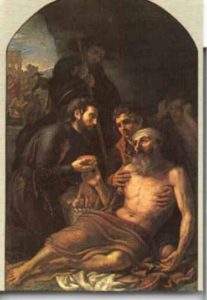 e to the poor sick in the hospital – that is our main goal – and in the recommendation of the souls, should persist and last forever, we must maintain the purity of our poverty with all exactness, diligence and good spirit, in the manner established by the Rule of our Order, since our service will last inasmuch as poverty is observed to perfection, that is, even in the least things. Therefore I urge everyone to be very faithful defenders of this holy vow of poverty and not to allow that this vow be in any way altered even for little, nor that, by deviating, the purity will be obscured. We must not allow ourselves to be deceived by the devil under the appearance of false good, thinking we cannot live with the alms alone, because this is the manifestation of diabolical deception to ruin our Holy Order. In fact in the Church of God there are many Mendicant Religious Institutes that profess a poverty greater than ours and yet the Lord provides them in all their needs. Who can doubt then that He does not provide our Order also, since it exercises a work so alive, not only in the hospital but also in the recommendation of souls? This is a great charity, pleasing and acceptable not only to God, but also to others: if he, so to speak, will have a bread, he will share it with us. Therefore, we must not doubt that we may lack the necessary: indeed, with the grace of the Lord, we will also have to throw away, as long as we do our duty”.
e to the poor sick in the hospital – that is our main goal – and in the recommendation of the souls, should persist and last forever, we must maintain the purity of our poverty with all exactness, diligence and good spirit, in the manner established by the Rule of our Order, since our service will last inasmuch as poverty is observed to perfection, that is, even in the least things. Therefore I urge everyone to be very faithful defenders of this holy vow of poverty and not to allow that this vow be in any way altered even for little, nor that, by deviating, the purity will be obscured. We must not allow ourselves to be deceived by the devil under the appearance of false good, thinking we cannot live with the alms alone, because this is the manifestation of diabolical deception to ruin our Holy Order. In fact in the Church of God there are many Mendicant Religious Institutes that profess a poverty greater than ours and yet the Lord provides them in all their needs. Who can doubt then that He does not provide our Order also, since it exercises a work so alive, not only in the hospital but also in the recommendation of souls? This is a great charity, pleasing and acceptable not only to God, but also to others: if he, so to speak, will have a bread, he will share it with us. Therefore, we must not doubt that we may lack the necessary: indeed, with the grace of the Lord, we will also have to throw away, as long as we do our duty”.
Camillus wanted that the witness of poverty would be individual and collective. The poor habit «old and valued» was not only for others but also for him.
In Maddalena, Camillus and Curzio get sick, «not because of any other thing but because of many hard labors done without eating and sleeping properly, sleeping above the stoves … and because of the bad quality of the air … they kept themselves very happy when they could have some hot bread prepared in the simeple water”(Cicatelli, 64-65).
Through the hands of St. Camillus, so much of money passed, but always for social emergencies, during the course of which he was entrusted with the organization of assistance.
For his houses, despite some conspicuous donations, he was always troubled by debts, especially towards the end, when, despairing of being unable to pay them, he was very sorry to leave trouble to his successors. In 1592, Maddalena’s debt was 9,000 scudi. The rent of the house, a sum of 370 scudi, was mercilessly demanded, at the agreed deadlines, by the Company of Gonfalore, who was the owner and who even came to squot some money just received as a gift (Cicatelli, 123).
For the journeys he had to undertake, he remedied some loans. The horse he used should not have been so robust that once, between Chieti and Bucchianico, it got stuck and he had to continue on foot (Cicatelli 441). Anecdotal is exemplary.
The collective testimony of poverty, as a recognized religious order, is documented by the fact that, despite being endowed with organizational capacity which was not common (seen during epidemics) and yet enjoying great moral prestige, St. Camillus never allowed himself to be involved in some type of construction projects which, at that same period, rose in the center of Rome by other religious (S. Andrea della Valle, 1591, the mighty brick facade of the Collegio Romano 1582-1591, the Jesus, begun in 1568, San Carlo al Corso, 1612, the Church of St. James, 1600, Holy Spirit, inaugurated in 1598, St. Mary Traspontina, whose yard passed before going to the Holy Spirit, etc). There was no mention of these “works of his own” in the biographies of St. Camillus , which are very well documented, as well as he never thought of building hospitals for the Order, alternatives to those public ones that were not working properly.








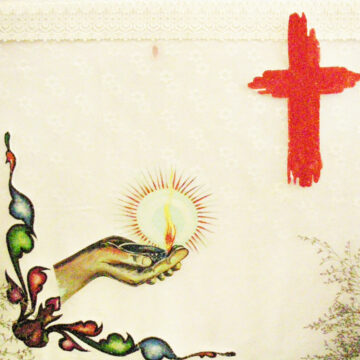
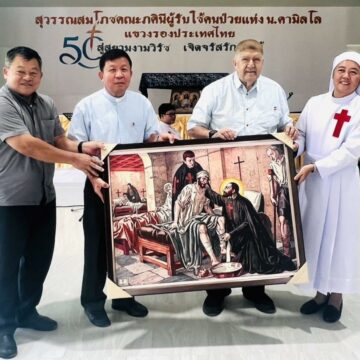
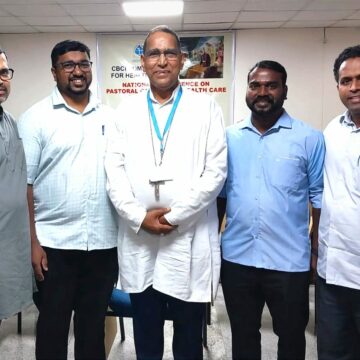


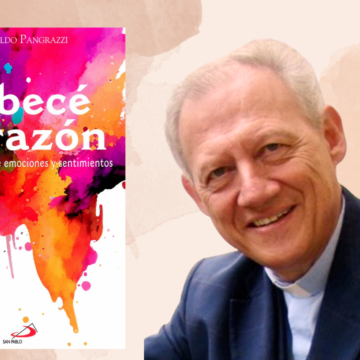
Camillians on Facebook
Camillians on Twitter
Camillians on Instagram